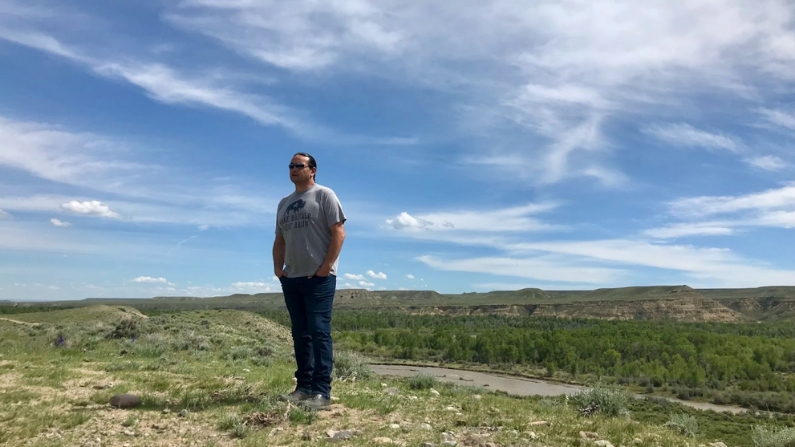Eastern Shoshone tribal member Jason Baldes has received the prestigious Wayfinder Award from the National Geographic Society for his work to restore bison to Indigenous lands.
Baldes was one of fifteen global leaders who received the award, as well as the title of National Geographic Explorer this year. The award recognizes leaders who are pushing the boundaries in science, conservation, education, technology and storytelling around the world.
As the bison manager for the Eastern Shoshone Tribe, Baldes has helped bring more than 100 bison back to the Wind River Reservation in the last ten years. In the early 1900s, an estimated 60 million bison grazed throughout North America and were a source of food, shelter, clothing, and spiritual significance for many Native tribes. However, through systematic efforts by the U.S. government, that number was reduced to a few hundred in an attempt to deprive tribal nations of a source of survival and sustenance.
Baldes also serves as executive director of the Wind River Tribal Buffalo Initiative and senior tribal buffalo program manager for the National Wildlife Federation’s Tribal Partnerships Program. He said pushing boundaries in his work looks like creating a paradigm shift where bison are recognized as wildlife, not livestock.
“They’re ecosystem engineers. They are keystone species. They store carbon. They increase plant and animal biodiversity. All of those are reasons enough to recognize this animal and its importance on the landscape. But we have a tendency to treat them like cattle and to treat them like a commodity,” he said.
For Baldes, that shift means retiring cattle grazing permits, taking down fences, and restoring migration corridors and wildlife habitat, as opposed to thinking about land use only in the context of agriculture and livestock.
The National Geographic award comes with $50,000 and the opportunity to apply for more funding in the future. Baldes said he plans to use the money to ensure the community has connections to bison, as well as continue to create educational and leadership opportunities for young people on the Wind River Reservation.
“We have a history of fighting to protect land, water, and wildlife on this reservation. Buffalo is really no different. We want to ensure that our young people are knowledgeable about that,” he said.
Baldes said he also hopes to build cultural and youth-exchange collaborations with other National Geographic Explorers who are working to protect land, water, and wildlife in places like Australia, Nepal, Mexico, Angola, Uganda, and Tanzania.






